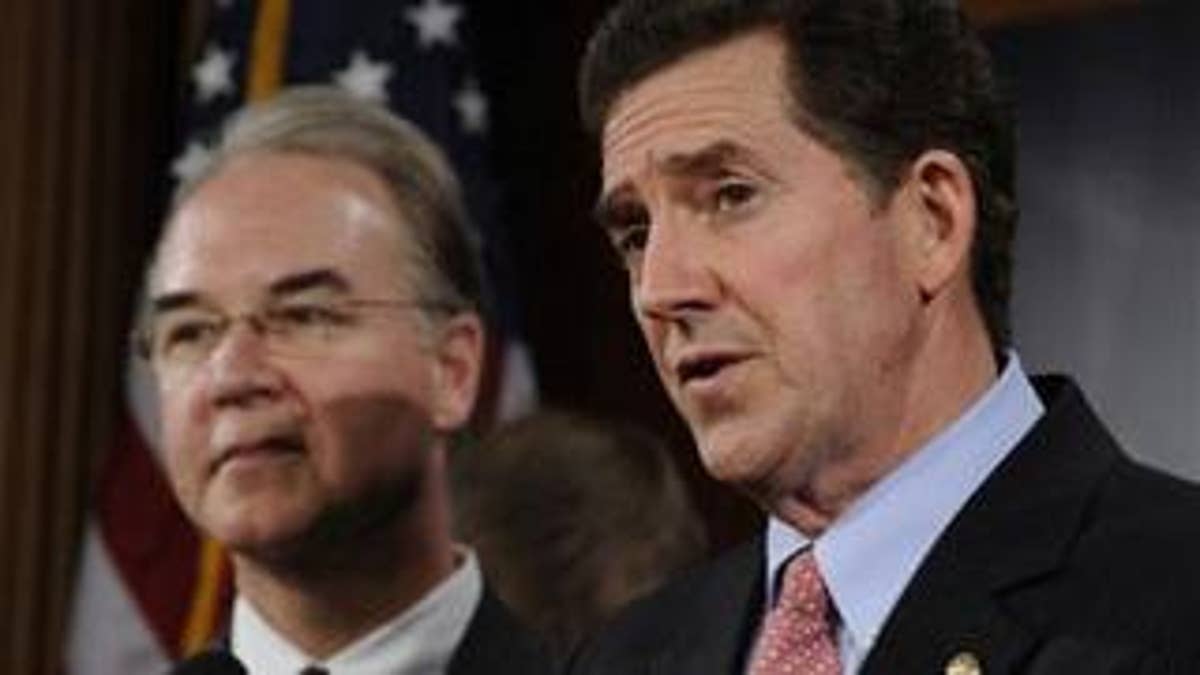
Republican Sen. Jim DeMint proposed an amendment Thursday to kill a provision in the Senate stimulus bill that prohibits renovation money for schools that allow religious groups to meet on campus.
DeMint proposed the amendment after the provision was passed in the Democratic-controlled House despite unanimous Republican opposition. The amendment is expected to be voted on Thursday, an aide to the senator told FOXNews.com.
DeMint and others who object to the provision say Democrats in Congress have declared war against prayer in the stimulus bill, which currently prohibits funds from being used for the "modernization, renovation, or repair" of facilities that allow "sectarian instruction, religious worship or a school or department of divinity."
"This provision is a clear attack on people of faith and it must be removed," DeMint's spokesman, Wesley Denton, told FOXNews.com Thursday.
"Why is an economic stimulus bill being used to kick religious groups off college campuses? It is a clear violation of students' constitutional rights and it should disturb Americans that they are trying to slip this through while people are concerned about the economy. The real question is who inserted this discrimination into the bill, and why," Denton said.
The language in the provision is so vague that it could prevent students from gathering to pray in their dorm rooms or inviting a speaker to campus to discuss religion, DeMint says.
The senator said it is part of federal law that schools cannot limit access to facilities or discriminate against people of faith -- citing federal law that states:
"It shall be unlawful for any public secondary school which receives federal financial assistance and which has a limited open forum to deny equal access or a fair opportunity to, or discriminate against, any students who wish to conduct a meeting within that limited open forum on the basis of the religious, political, philosophical, or other content of the speech at such meetings."
The House provided $20 billion for the infrastructure improvements, of which $6 billion would go to higher education facilities where the limitations would be applied.
But civil liberty groups like the ACLU defend the stimulus bill's provision, arguing that it in no way violates the Constitution.
"It's almost a restatement of what the Constitution requires so there's nothing novel in what the House did in its restriction," said Christopher Anders, senior legislative counsel to the ACLU. "For 37 years, the law of the land is that the government can't pay for buildings that are used for religious purposes."
And according to some constitutional law experts, any complaint filed against the provision will gain little ground in court.
"Certainly the provision is treating the act of religious organizations differently from the activities of the school itself," Harvard University constitutional law professor Mark Tushnet told FOXNews.com.
"It's not frivolous to say there's a constitutional problem with excluding religious facilities from these grants, but I think the way of the law is in the other direction," he said.




